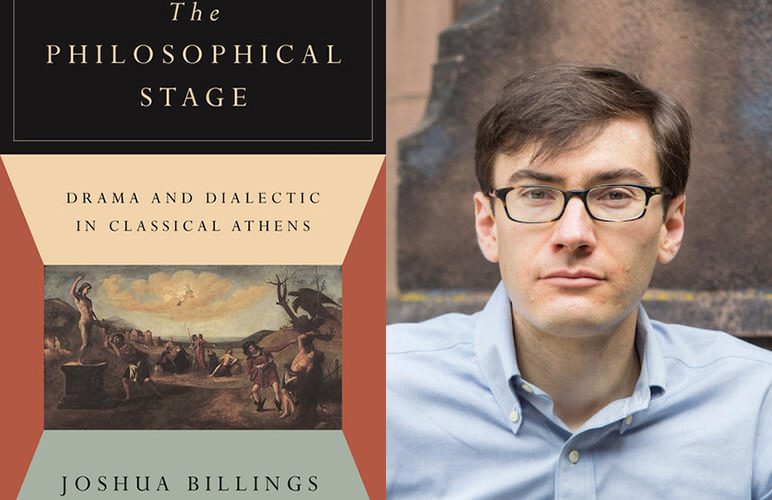Joshua Billings is Professor of Classics. His book “The Philosophical Stage: Drama and Dialectic in Classical Athens” was published in June 2021 by Princeton University Press.
How did you get the idea for this project?
Since I was a first-year in college, I’ve been intrigued and puzzled by the way that certain plays of the late fifth century BCE seem profoundly engaged with the philosophical thought of their time. I’ve been trying to make sense of this for almost twenty years now, and the book offers one (partial and provisional) way of doing this. I discuss the way that philosophical thought in the period is “predisciplinary,” not fixed to a certain mode of thinking or writing, and argue that drama was at the center of the intellectual culture of the time, and has a claim to be considered philosophy before philosophy.
How has your project developed or changed throughout the research and writing process?
I’ve remained stuck on the same questions and interested in the same texts, but have organized the material in at least three different ways – by author, by topic, by central character – before settling on scenic forms as the central focus. I argue that certain scene types recur across works and authors and explore defined philosophical questions, constituting something like a philosophical method.
What questions for future investigation has the project sparked?
The late fifth century BCE in Greece is one of the most fertile moments in intellectual history – it’s the period of the beginnings of European philosophy – but much of what we know about it comes mediated through later, partial (and often partisan) lenses and interpretations. I am one of many scholars today working to revise classical intellectual history by seeking to understand early Greek thought on its own terms, avoiding teleology and anachronism. I find this project immensely exciting; there is much more to do.
Why should people read this book?
I hope the book will appeal to readers interested in Greek tragedy and philosophy, and in the way that we understand the history of European thought – but I don’t think anyone should read this book!
Learn more about other publications by Princeton University faculty in the humanities by exploring our Faculty Bookshelf.
















